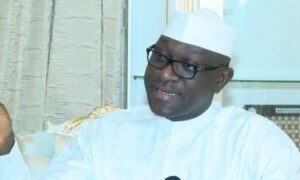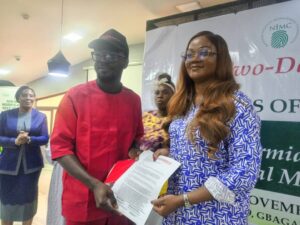


Nigeria’s pension assets surge to N19.5trn in January 2024
By Sodiq Adelakun
Nigeria’s pension landscape has witnessed a significant boost as the Contributory Pension Scheme (CPS) assets have soared to N19.5 trillion at the end of January 2024, marking a 6.3 percent increase from the N18.6 trillion reported in December 2023.
The National Pension Commission (PenCom) has released data indicating not only an increase in assets but also a rise in the number of registered contributors, which climbed to 10.23 million in January from 10.19 million in December 2023.
A closer look at the portfolio allocation reveals that Federal government securities continue to dominate, accounting for N12.14 trillion of the investment, with FGN bonds alone contributing a staggering N11.6 trillion.
Meanwhile, domestic ordinary shares have attracted N1.93 trillion, and money market instruments have drawn N1.71 trillion.Oguche Agudah, the chief executive officer of the Pension Fund Operators Association of Nigeria (PenOp), provided insights into the remarkable growth of pension funds in the last quarter of 2023.
According to Agudah, “In Q3:2023, monthly pension contributions for RSA Funds I, II, III, V, and VI Active reached an impressive total of N564.12 billion. This represents a significant increase of N69.91 billion, or 14.15 percent, compared to the N494.21 billion recorded in the second quarter of 2023.”
Oguche said this surge in these assets during the period can be attributed to various factors, primarily the notable increase in the salaries of many workers.
Recognising the challenges posed by the rising cost of living, employers have responded by enhancing the compensation packages for their employees, and this salary increment has naturally led to higher monthly pension contributions, he said.
“Additionally, some states began clearing their outstanding pension arrears during this period. The resolution of these arrears likely prompted increased participation in pension schemes and contributed to the overall growth in contributions observed in Q3.”
Pension contributions in Nigeria have increased by 22.2 percent in the third quarter of 2021, according to the National Pension Commission (PenCom).
The Director-General of PenCom, Aisha Dahir-Umar, attributed the growth to salary increments and proactive measures taken by some states to address pension arrears.



